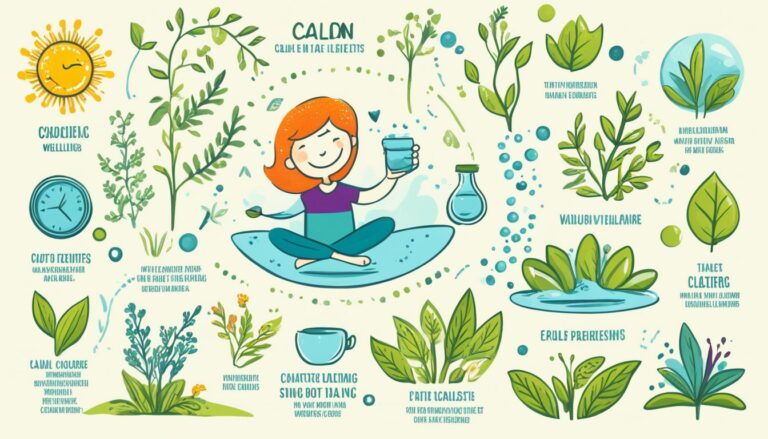Unlock Your X Factor: How to Excel at Almost Everything
Did you know we spend about 90,000 hours at work in our lives? That’s almost 10 years! But how many of us really shine in our jobs? How many of us use our X factor to its fullest?
The X factor is that special something that makes people stand out. It helps some people do amazing things while others don’t get as far. But here’s the good news: you can develop your X factor. It’s not just for a few lucky ones.
This article will explore how to improve yourself and find your X factor. It’s for anyone wanting to be a top professional, a successful entrepreneur, or just a well-rounded person. Finding and using your X factor is the secret to reaching your highest potential.
Key Takeaways:
- Excel at almost everything by unlocking your X factor.
- The X factor is not limited to a select few; it can be developed and honed.
- Personal development and self-improvement are key to accessing your X factor.
- Understanding and applying your X factor can lead to remarkable success.
- Embrace the journey of unlocking your X factor and reaching your full potential.
Understanding the X Factor
What is the X factor? It’s not just about talent or skill. It’s a mix of special qualities that help people do great things. Those with the X factor seem to succeed easily in work and life.
Embracing the X factor means having a growth mindset. This means you believe you can get better with hard work and a positive attitude. It’s about seeing that you can grow your skills and abilities.
With a growth mindset, you can reach your full potential. You can take on new challenges and learn from them. This helps you grow and improve in all areas of life.
Want to develop a growth mindset and find your X factor? Here are some tips:
- Don’t be afraid of challenges. See them as chances to learn and get better.
- Always be curious and eager to learn new things. Every experience is a chance to grow.
- Set clear goals for yourself. Break them down into smaller steps and celebrate your wins.
- Don’t give up when things get tough. Use failures as chances to learn and do better next time.
- Ask for feedback from people you trust. Use it to improve and grow.
Getting a growth mindset takes time and effort. It’s about constantly working on yourself and believing in your abilities. With hard work and persistence, you can unlock your X factor and achieve great success.

The X Factor in Action
Let’s look at Elon Musk to see the X factor in action. Musk is the entrepreneur behind Tesla and SpaceX. He shows what it means to have the X factor.
Musk has faced many challenges, from going bankrupt to rocket launch failures. But he always saw these as chances to learn and get better. His growth mindset helped him bounce back and keep aiming for his goals.
By having the X factor and a growth mindset, Musk has reached incredible success. His story shows us that with the right mindset, we can all unlock our X factor and do amazing things.
Identifying Your Areas of Improvement
To get better at what you do, first find out where you need to grow. This means looking at yourself and knowing what you need to work on. It’s key to getting better at work and in life.
Start by looking at what you’re good at and where you struggle. Think about your wins and what you’re not so great at. Be real with yourself about where you can do better. This is the start of getting better.
Getting advice from others can also help. Talk to people you trust like bosses, coworkers, or friends. They might see things you don’t and can tell you where you can improve.
Goal Setting
After figuring out what you need to work on, set clear goals. Goals help you know what to focus on. Use the SMART method to make your goals:
- Specific: Be clear about what you want to achieve.
- Measurable: Figure out how you’ll track your progress.
- Achievable: Make your goals challenging but doable.
- Relevant: Make sure your goals match what you really want.
- Time-bound: Set deadlines to keep you on track.
SMART goals help you see how you’re doing and keep you going.
Self-Assessment Tools
There are tools that can give you more insight into what you’re good at and where you can get better. These tools offer feedback and help for getting better. Some popular ones are:
- StrengthsFinder: Finds your best strengths.
- DISC Assessment: Looks at how you act and talk.
- Emotional Intelligence Assessment: Checks your emotional smarts.
These tools can help you understand yourself better and make a plan to improve.

Improving yourself is ongoing. As you get better in one area, you’ll find new things to work on. Keep working on yourself and always look for ways to get better. By knowing what you need to work on and setting goals, you’re on your way to mastering yourself and reaching your full potential.
Creating a Personal Development Plan
Personal development and self-improvement need a clear plan to reach greatness. A personal development plan is like a roadmap. It shows the steps and strategies to improve your skills, knowledge, and wellbeing.
Start by thinking about your goals and what you need to get better at. Think about where you are now and where you want to be in life. Setting clear goals helps you focus on what needs work.
After setting your goals, make a plan of action. Break your goals into smaller tasks. This makes tracking your progress easier and keeps you motivated.
Include these things in your plan:
- SMART goals: Make goals that are Specific, Measurable, Achievable, Relevant, and Time-bound. This makes your goals clear and reachable.
- Timeline: Set a timeline for each goal. This keeps you focused and on track, helping you make steady progress.
- Resources: Find out what you need to reach your goals. This could be books, courses, mentors, or other support. Figure out how to get these resources and add them to your plan.
- Habits: Build good habits that help you grow. Add daily or weekly activities that help you improve. Habits are important for keeping up progress over time.
- Evaluation: Check your progress often. This helps you see what’s working and what’s not. Change your plan as needed to stay on track and get past any hurdles.
Remember, personal development is a journey that changes over time. Stay flexible and be ready to adjust your goals and plans as needed. By sticking to your personal development plan, you’ll move closer to self-improvement and achieving your goals.
| Benefits of a Personal Development Plan | Steps to Create a Personal Development Plan |
|---|---|
| 1. Provides clarity and direction 2. Increases self-awareness 3. Enhances motivation and focus 4. Promotes continuous learning and growth |
1. Reflect on your goals and aspirations 2. Break down goals into actionable tasks 3. Set SMART goals and establish a timeline 4. Identify necessary resources 5. Cultivate positive habits 6. Regularly evaluate progress and make adjustments |
Setting SMART Goals
To unlock your potential, set SMART goals. SMART means Specific, Measurable, Achievable, Relevant, and Time-bound. This helps you plan and track your progress.
Be clear about what you want to do. Instead of “improve my skills,” say “attend three workshops in six months to get better at my job.” This makes your goal clear and measurable.
Goals should be something you can measure. Use numbers and targets to see how you’re doing. For example, aim to do more tasks each day or save time by working smarter.
Make sure your goals are realistic. It’s good to push yourself, but don’t set goals you can’t reach. Think about what you can do now and what you have.
Your goals should match your values and dreams. This keeps you motivated and focused on what’s important to you.
Every goal should have a deadline. Deadlines make you work faster and stay on track. Break big goals into smaller steps with deadlines to keep track of your progress.
Setting SMART goals helps you grow and improve. Use this method to plan your path and stay motivated.
| Goal | Specific | Measurable | Achievable | Relevant | Time-bound |
|---|---|---|---|---|---|
| Improve physical fitness | Attend three exercise classes per week | Track progress through weekly fitness assessments | Allocate time in daily schedule for workouts | Enhance overall well-being and energy levels | Achieve desired fitness level within six months |
| Develop communication skills | Enroll in a public speaking course | Deliver three presentations to colleagues | Practice speaking techniques daily | Enhance professional relationships and career prospects | Complete the course and presentations within three months |
| Read more books | Read two books per month from different genres | Track reading progress and set reading challenges | Create a dedicated reading routine | Expand knowledge and gain diverse perspectives | Read 24 books within the year |
Developing Strong Habits
Building strong habits is key to personal growth and self-improvement. Habits shape our actions and behaviors. Positive habits boost our growth mindset.
So, how do we build strong habits? Here are some tips:
1. Start Small
Starting big can feel overwhelming. Start with something small. Like reading for 10 minutes a day or being grateful before sleep. This makes it easier to keep going and increases your chances of success.
2. Set Clear Goals
Clear goals keep us focused and motivated. Know what you want from your new habit. It could be better health or new skills. A clear goal gives you direction and purpose.
3. Create a Routine
Being consistent is important for building habits. Make a routine that fits your new habit. This could be waking up early to exercise or setting aside time for learning. A routine keeps you on track and makes habits easier.
4. Stay Accountable
Having someone to check on you can really help. Tell a friend or join a group focused on personal growth. This support keeps you motivated and committed.
5. Track Your Progress
Watching your progress feels good and keeps you going. Use a journal, apps, or make a chart. Celebrate your wins and adjust as needed.
Use these tips to build habits that help you grow. They’ll support your personal development and help you succeed.
Remember, growing personally is ongoing. Building strong habits is a key part of improving yourself and reaching your goals.
Seeking Continuous Learning
Learning every day is key to getting better at what you do. It helps you improve your skills and do better in life. I’ll talk about why learning every day is important and how to make it part of your life.
Why is Continuous Learning Important?
Learning every day helps you grow and get better. It makes you smarter and opens up new chances. By learning new things, you can keep up with changes and stay on top in your job.
It also makes you more creative and innovative. You’ll think differently and come up with new ideas. Learning about different topics helps you see things from many angles and solve problems in new ways.
Strategies for Continuous Learning
Here are ways to make learning a part of your life:
- Read a lot: Make reading a habit. Check out books on many topics, like stories, self-help, and things you’re interested in.
- Go to workshops and webinars: Join workshops and webinars that match your interests or what you want to learn more about.
- Take online courses: Sign up for online courses or use e-learning sites to learn at your own speed.
- Join professional groups: Be part of professional groups and go to meetings or events to meet people and learn new things.
- Find a mentor: Look for someone who can help guide you and share their knowledge to improve your skills.
Continual Learning: A Journey, Not a Destination
See learning as a journey, not just a goal. Always look for chances to learn and get better, in your life and work. Remember, getting better is a constant thing. By always learning, you can reach your full potential and see great results.
Embracing Failure and Feedback
Personal growth and self-mastery mean learning from failure and feedback. A growth mindset helps us see failures as chances to learn and get better. This is key to growing on our own.
Having a growth mindset means seeing challenges as ways to grow. It means not giving up when things don’t go well. Instead, we learn from our mistakes and keep going.
Seeing failure as a chance to learn helps us not be afraid of mistakes. This lets us try new things and grow. It’s important for reaching our full potential.
Also, getting feedback is key to self-mastery. Feedback shows us what we’re good at and where we can get better. It helps us see things from different angles.
“Feedback is a shortcut to improvement.”
Feedback, whether good or bad, helps us get better. We should listen to it with an open mind. It can really help us improve.
Developing a Feedback Mindset
To get better at feedback, be open, think about it, and act on it. Here’s how:
- Be open to feedback: See feedback as a chance to learn and get better.
- Reflect on feedback: Think about what you heard and what you can do next.
- Seek feedback actively: Look for advice from others, value their opinions, and learn from them.
- Implement feedback: Use what you learn to improve yourself.
By learning from failure and getting feedback, we grow and master ourselves. Remember, getting better is a journey. Every mistake and piece of feedback helps us grow.
| Growth Mindset vs. Fixed Mindset | Key Characteristics |
|---|---|
| Growth Mindset |
|
| Fixed Mindset |
|
Cultivating a Supportive Network
Having a supportive network can really help with personal growth. It’s about being around people who believe in you and support your goals. They give you the motivation and advice you need.
Self-improvement is big for many, and a good network makes a big difference. Here’s why it’s key:
- Motivation: Being with a supportive group gives you the push to keep going. When things get tough, their support can make you want to keep moving forward.
- Accountability: A group of supporters keeps you on track with your goals. They remind you of what you’re aiming for.
- Knowledge and Insights: Your network can share their wisdom and experiences with you. This helps you see things from new angles.
- Collaboration: Working with others in your network lets you use everyone’s strengths together. You can reach your goals faster this way.
To build a supportive network, look for people who are into self-improvement too. Find those who are always learning and growing. Join groups, go to events, and be active online to meet them.
Remember, you’re not alone in personal growth. A supportive network gives you the help, advice, and teamwork you need to reach your dreams.
Quotes:
“Surround yourself with people who believe in your dreams, encourage your ideas, and bring out the best in you.” – Roy T. Bennett
“Your network is your net worth.” – Porter Gale
Benefits of a Supportive Network
| Benefits | Description |
|---|---|
| Motivation | A supportive network gives you the motivation to beat challenges and keep improving yourself. |
| Accountability | They keep you on track with your goals, making sure you stick with self-improvement. |
| Knowledge and Insights | Your network shares their wisdom and experiences, helping you grow. |
| Collaboration | Working with others lets you use everyone’s strengths to reach your goals faster. |
Practicing Self-Care and Well-being
Personal development is a journey of growth and self-improvement. It’s key to focus on getting better and taking care of yourself. Self-care is vital for your well-being.
Self-care means doing things that help your body, mind, and heart. It’s about knowing what you need and making time for it. Adding self-care to your daily life can make you feel better and do better in life.
Self-care helps you grow personally. It lets you be your best and handle tough times well. When you take care of yourself, you get more energy, feel less stressed, and can focus better. This helps you reach your goals with more clarity and drive.
There are many ways to practice self-care. Find what works for you. Some common ways include:
- Regular exercise to boost energy and keep body and mind healthy
- Taking breaks and relaxing to reduce stress and avoid burnout
- Doing things you enjoy, like hobbies or being in nature
- Getting enough sleep and having a regular sleep schedule for well-being
- Spending time with people who support and uplift you
Self-care is not selfish. It’s important for growing personally. Taking care of yourself helps you face challenges, bounce back stronger, and live a fulfilling life. Self-care helps you take care of your mind, body, and spirit, letting you thrive in every area of life.
| Benefits of Practicing Self-Care and Well-being | Ways to Incorporate Self-Care into Your Routine |
|---|---|
| 1. Reduced stress and improved mental well-being | 1. Set aside time for self-care in your schedule |
| 2. Increased energy levels and improved focus | 2. Do activities that make you happy and relaxed |
| 3. Enhanced resilience and ability to handle challenges | 3. Get enough sleep and stick to a sleep routine |
| 4. Improved overall physical health | 4. Use mindfulness and relaxation to help you |
By focusing on self-care and your well-being, you set the stage for personal growth. Remember, a balanced life is the base for mastering yourself and reaching your full potential.
Conclusion
We looked at the X factor and how it helps us grow and get better. The X factor is that special thing in us that makes us stand out. It pushes us to be our best in many areas of life.
We talked about finding what we need to work on and making a plan to get better. We also talked about setting clear goals and sticking to them. It’s important to learn new things, accept failure, and get feedback.
Having a good support network and taking care of ourselves is key too. By doing these things, we can reach our full potential. Remember, getting better is an ongoing process.
Start improving today, take small steps, and celebrate your wins. With hard work and never giving up, you can use your X factor to achieve great things.







